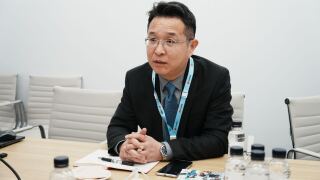Some governments in Africa have been far quicker to pursue far reaching market liberalisation designed to attract foreign investment and value-added services. Kenya, for instance, introduced a simplified and converged licensing structure in 2008, which helped lower barriers to market entry and increase competition.
“De-regulation has taken deep-seated effect in Kenya,” says John Melick, chairman, at Djibouti Data Centre (DDC). “”There are multiple operators, ISPs and a growing number of data centre facilities for enterprises and CDNs to house their services and deliver next-generation IP services.”
The market boasts both strong regional and international connectivity, having seen a dramatic increase in bandwidth following the landing of four subsea cable systems in recent years. LTE deployments are also underway, with Safaricom having already deployed LTE-Advanced services in Nairobi and Mombasa, while Airtel Kenya is aiming to upgrade its networks to 4G by the end of the year.
The country serves as a large financial and manufacturing hub for the region, and Melick believes advancements to its networks has created very favourable conditions for telecoms operators to serve an increasing number of enterprise customers. “We see a growing enterprise customer base there. Unlike Djibouti, it has an organic base of enterprises as well as good access to regional and transoceanic cables,” he says.
Progressive regulatory environments are also benefitting the likes of Nigeria and Ghana.
The latter is a pioneer in Africa when it comes to liberalising and deregulating its telecoms market, privatising incumbent Ghana Telecom as early as 1996. At the start of the year, Ghana’s National Communications Authority (NCA) invited applications for telecoms licences designed to increase competition in the industry. According to World Telecoms Labs MD Leigh Smith, prices could be driven down due to increased competition as a result of new wholesale termination operators.
“This will be accompanied by network improvements as operators using VoIP start to collaborate,” he says. “In addition, there is potential for mass provider swaps when SIM re-registration comes into force at the end of the year after new ID cards are implemented and issued.”
Nigeria is one of the fastest growing telecoms markets in Africa and has attracted significant foreign investment thanks to its favourable regulatory environment. Building on this, it invited bids for the first regional infrastructure company (InfraCo) licences, allowing for the deployment of metropolitan fibre-optic infrastructure and associated transmission equipment on an open access, non-discriminatory and price-regulated basis. Mainone and HIS emerged as successful winners earlier this year, and Smith predicts this should accelerate access to broadband across the nation. “The migration to national and international optimised VoIP links will continue in the country, relieving the stretched TDM infrastructure,” he adds.




